The Kenyan authorities' epidemic worsened, and the national curfew extended again affected coffee exports in tourism.
Kenyan authorities extend curfew
On August 18, 2021, Kenya time, the presidential palace issued a message that due to the failure of the people to strictly comply with various epidemic prevention measures, coupled with the strong transmission capacity of Delta mutant strains. The number of people infected with COVID-19 has increased across the country, with COVID-19 testing positive for more than 20 per cent in 18 counties.

In order to contain the further deterioration of the epidemic, President Uhuru Kenyatta (Uhuru Kenyatta) announced that the national curfew from 20:00 to 4: 00 the next day would be extended for another 60 days. As of the same day, the total number of confirmed cases of COVID-19 in Kenya reached 224400, with a total of 4378 deaths.
Kenya approves Chinese COVID-19 Vaccine
With the extension of martial law, Kenya has approved the vaccine of China National Pharmaceutical Group, according to Xinhua News Agency on Aug. 19.
Willis Akhwal (Willis A khw ale), head of the COVID-19 Vaccine Task Force of the Ministry of Health of Kenya, said that the Pharmacy and Poisons Commission (Pharmacy and Poisons Board), Kenya's medical regulator, had approved the COVID-19 vaccine of China National Pharmaceutical Group because it had been approved for emergency use by the World Health Organization to promote sustained vaccination of the virus.
As of the same day, 2.8% of patients had completed vaccination.
The tourism industry has been hit hard
Tourism, one of the pillar industries of the Kenyan economy and a major source of foreign exchange earnings, has been hit hard by the epidemic. Between July and October, when animals migrate, millions of herbivores, mainly wildebeest and zebra, migrate back and forth between Serengeti National Park in northern Tanzania and Masai Mara National Reserve in southwestern Kenya across the river, attracting many foreign tourists.
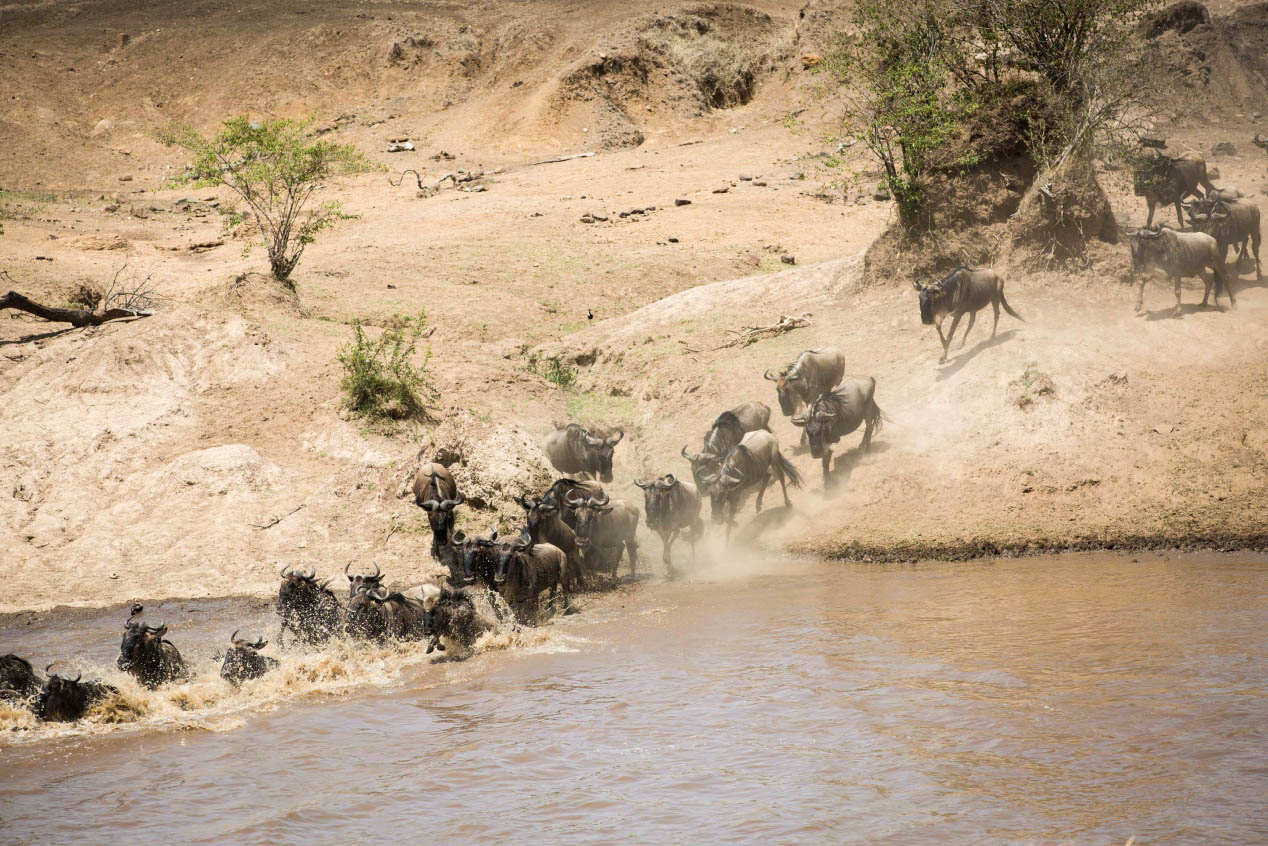
(photo by Xinhua News Agency reporter Lu Shuai)
Tourism revenue in 2019 totaled $1.762 billion, and then Tourism Minister Najib Bharara said Kenya's tourism revenue lost as much as 81.8 billion shillings ($818 million) between February and June 2020. Now that the epidemic in Kenya is getting worse, it comes at a time when the tourist season will be hit hard again.
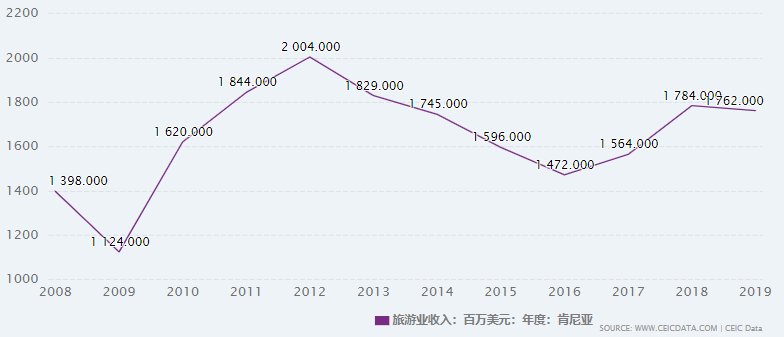
On August 3, local time, Tourism Minister Bharara said Kenya's tourism industry is expected to fully recover in 2024. However, data show that a total of 305635 foreign tourists visited Kenya from January to June 2021, compared with 2049000 in 2019 before the epidemic.
Is the export trade of tea and coffee in Kenya affected?
Kenya is the second largest black tea producer and exporter in the world, and the tea industry occupies an extremely important position in the Kenyan national economy. Tea trees have been planted in Kenya for a hundred years. In 1903, Kenya was still a British colony. The British brought tea trees from India to Africa and planted tea trees successfully near Nairobi, the capital of Kenya.
In 1963, after Kenya became independent, a tea bureau was set up to vigorously develop tea planting, processing and production. After 2013, output once surpassed Sri Lanka to become the third largest producer of tea. However, in 2017, due to the frequent occurrence of extreme weather due to global warming, the resulting long dry season led to the withering and yellowing of tea trees, which directly affected the yield and quality of tea, and the output decreased significantly.
However, the tea trade has not been seriously affected by the epidemic. Kenya's tea export revenue in 2020 was 1200 billion shillings ($1.09 billion), up from $1.06 billion in 2019, according to a new report released by the Kenya Tea Bureau in February.
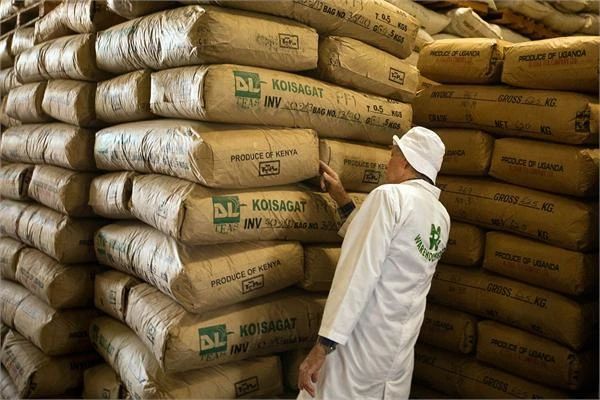
Coffee, another important export commodity of Kenya, is another story. Coffee was introduced to Kenya in 1893. Kenya was a British colonial country. In order to earn foreign exchange, the British colonial government widely promoted coffee cultivation in Kenya and set up a Scott laboratory to select high-quality coffee varieties, such as SL28 and SL34.
The Kenya Coffee Commission was established in 1931 and the first auction was held in 1935. In 1963, Kenya gained independence from Britain, and farmers were given a third mu of land from the colonists' plantations. The Government of Kenya recognized the importance of the agricultural sector and safeguarding the interests of individual farmers and made exports a priority for economic growth. In the same year of independence, the Nairobi Coffee Exchange (NCE) was established, and Kenya mandated weekly coffee auctions.
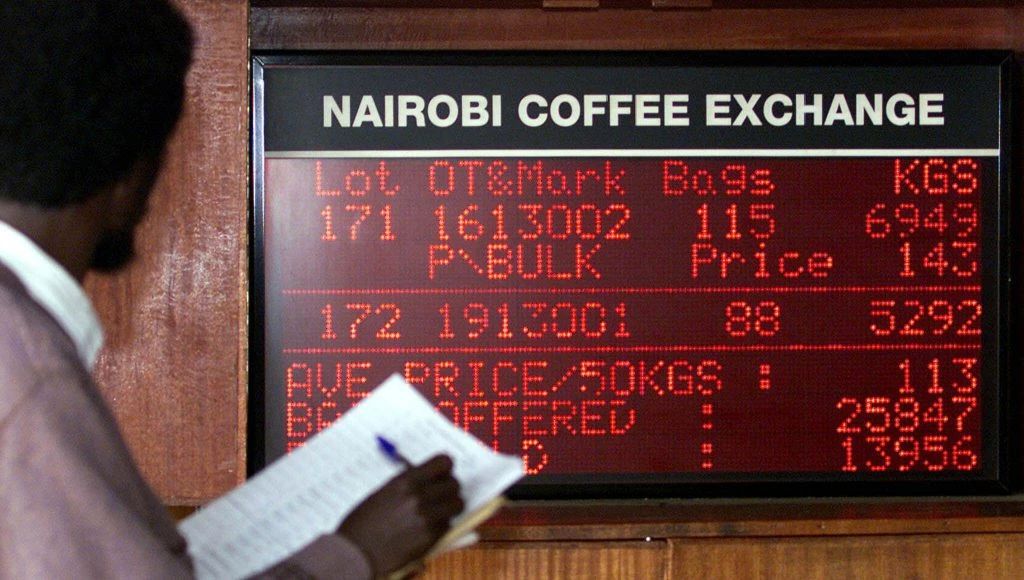
After a series of reforms, Kenya's coffee production reached 126000 tons (1986). Due to the scattered cultivation of small farmers and natural disasters, coffee production gradually declined until 2018, accounting for only 46000 tons, accounting for about 1 per cent of global production.
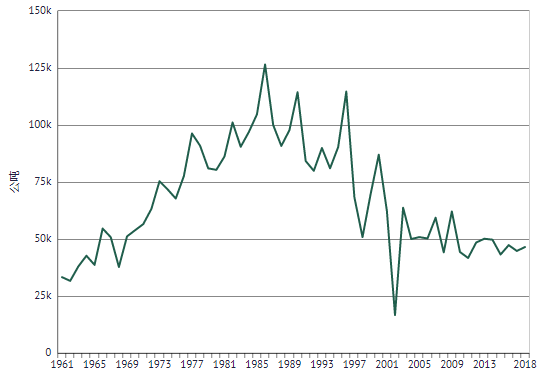
(image source knoema.com)
Kenya's coffee trade has also been hampered by the COVID-19 epidemic. According to Kenya Citizen Television (
Industrialization Cabinet Minister Betty Mena said Kenya hopes to boost relations with South Korea by increasing trade, especially coffee trade, Kenya CitizenTV reported. Although the coffee order negotiated at present is about 10 tons.
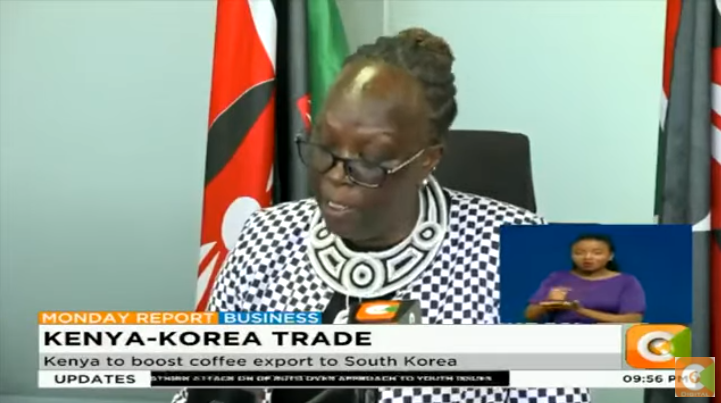
Important Notice :
前街咖啡 FrontStreet Coffee has moved to new addredd:
FrontStreet Coffee Address: 315,Donghua East Road,GuangZhou
Tel:020 38364473
- Prev
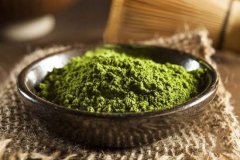
Is Japanese matcha powder green tea powder the same? is matcha powder made of green tea? which one is better?
Matcha green tea powder is green powder at first glance, but in fact, there are different processes.
- Next

Italian coffee brand Rabasa LAVAZZA Guangzhou first store launched a new creative drink tortoise Ling paste latte
I believe all of you have come into contact with coffee with a century-old brand, Tongrentang, Nestl é and so on. Speaking of century-old brands, everyone already has a list in mind. When it comes to the century-old brand of coffee, everyone's first reaction may be Nestle, but Nestle does have a history of more than 150 years, and its history of making coffee drinks dates back to Nestle Coffee in 1938.
Related
- Unexpected! Ruixing Telunsu lattes use a smoothie machine to foam milk?!
- % Arabia's first store in Henan opens into the village?! Netizen: Thought it was P's
- Does an authentic standard mocha coffee recipe use chocolate sauce or powder? Mocha Latte/Dirty Coffee/Salty Mocha Coffee Recipe Share!
- What is the difference between Vietnam egg coffee and Norway egg coffee? Hand-brewed single product coffee filter paper filter cloth filter flat solution!
- What is the difference between sun-cured and honey-treated coffee? What are the differences in the flavor characteristics of sun-honey coffee?
- How to make Italian latte! How much milk does a standard latte use/what should the ratio of coffee to milk be?
- How to make butter American/butter latte/butter Dirty coffee? Is hand-brewed coffee good with butter?
- Is Dirty the cold version of Australian White? What is the difference between dirty coffee/decent coffee and Australian white espresso?
- Relationship between brewing time and coffee extraction parameters How to make the brewing time fall to 2 minutes?
- Got entangled?! Lucky opens a new store, Mixue Ice City, and pursues it as a neighbor!

